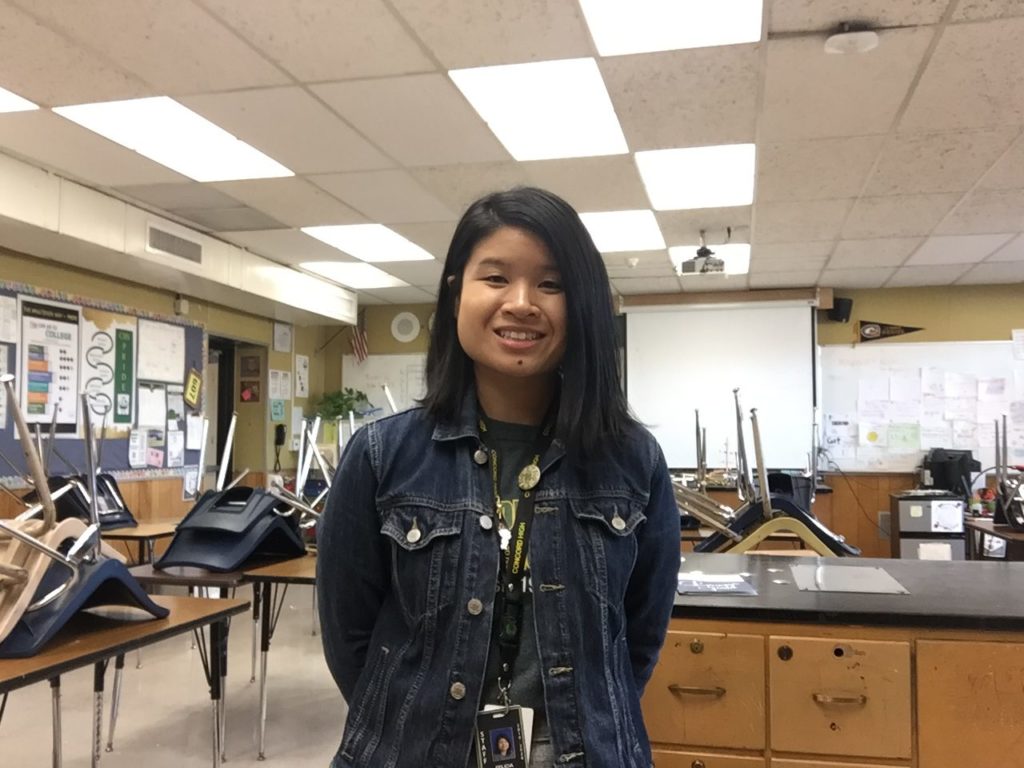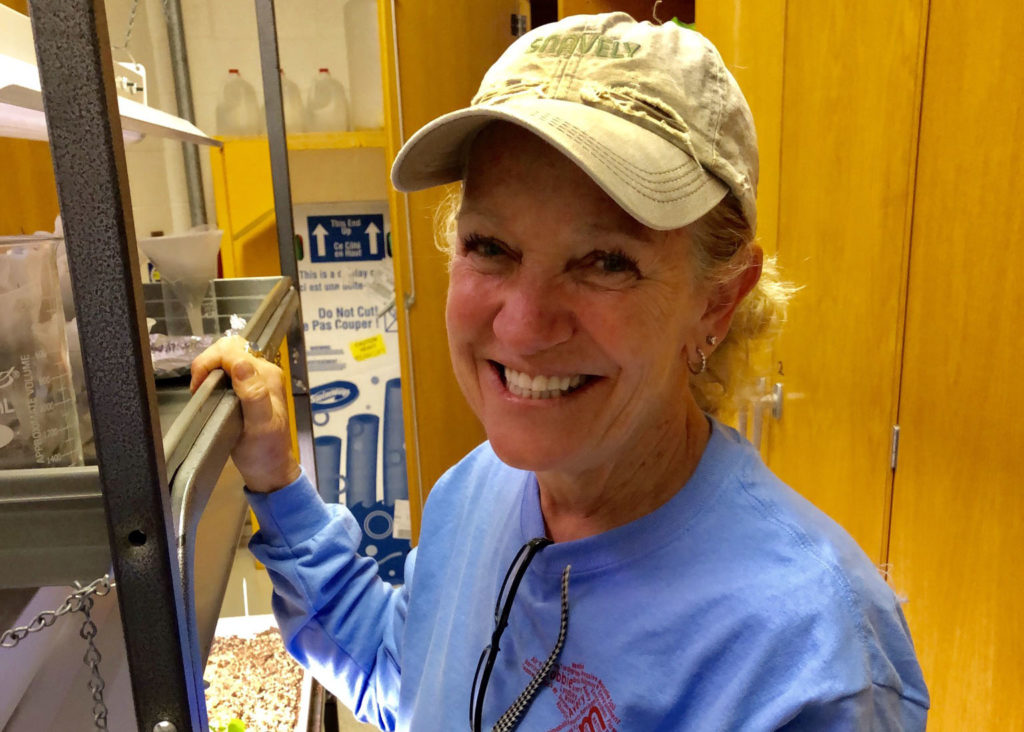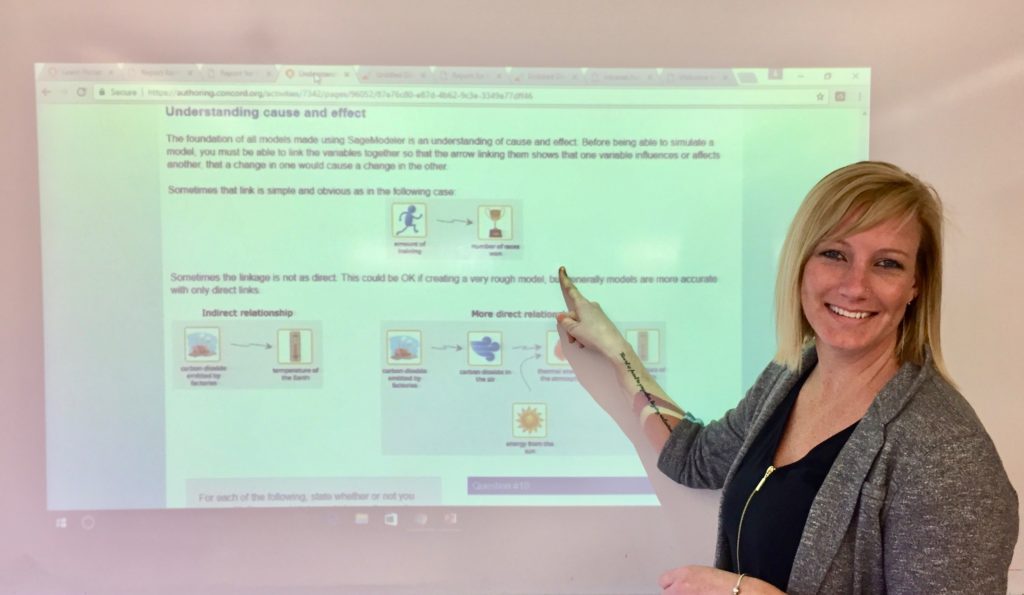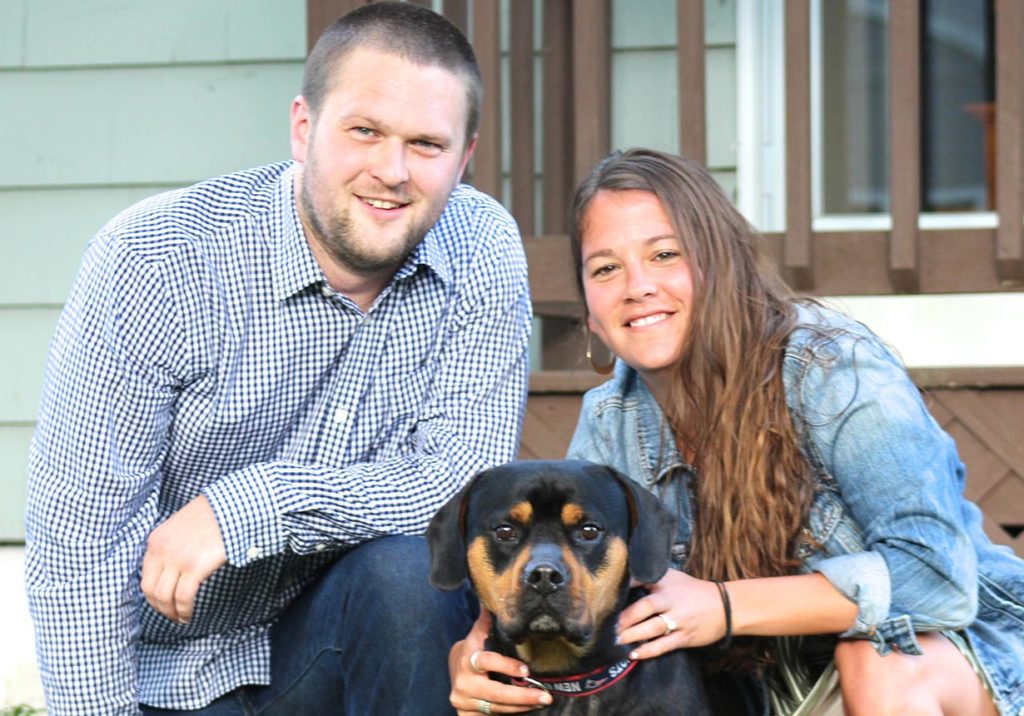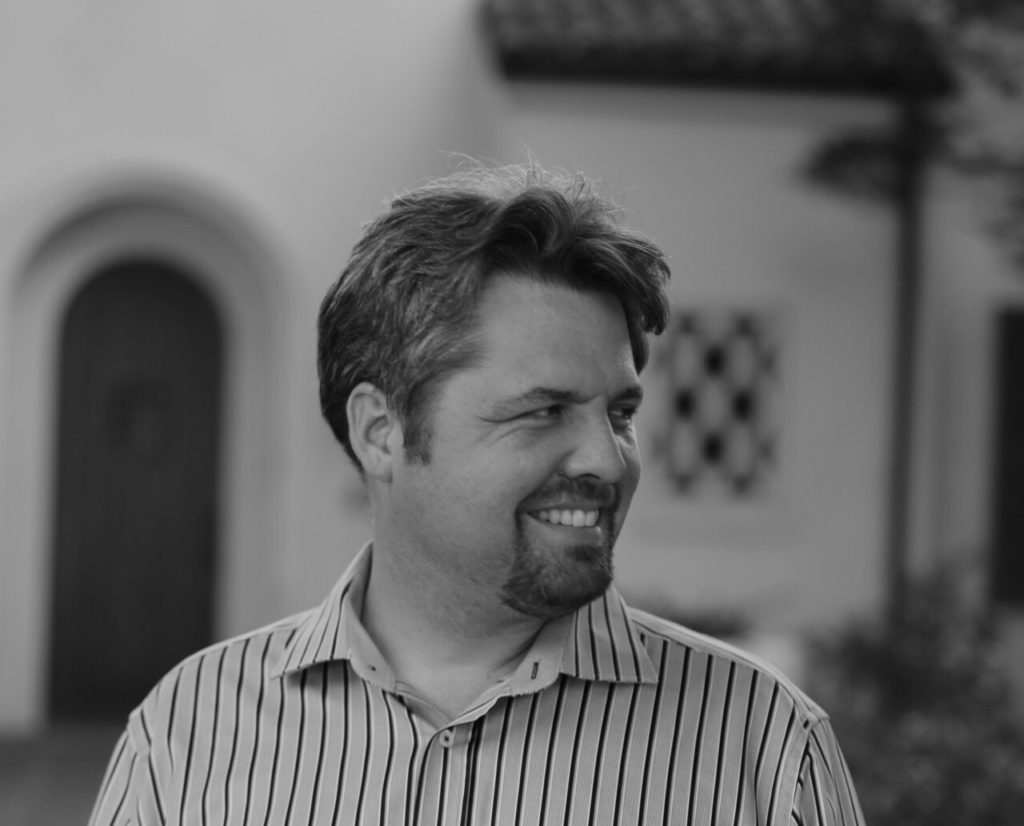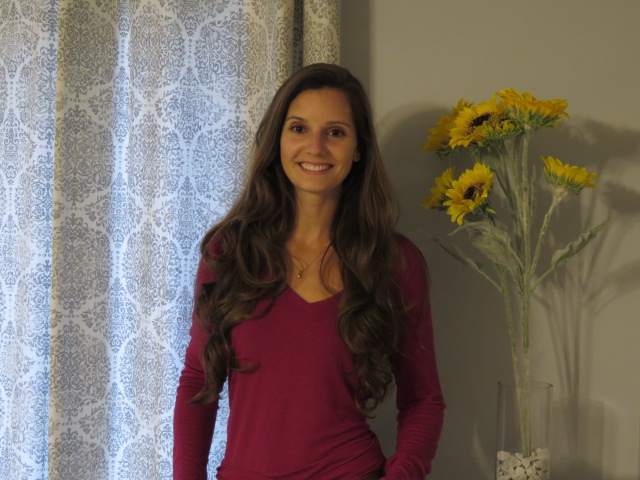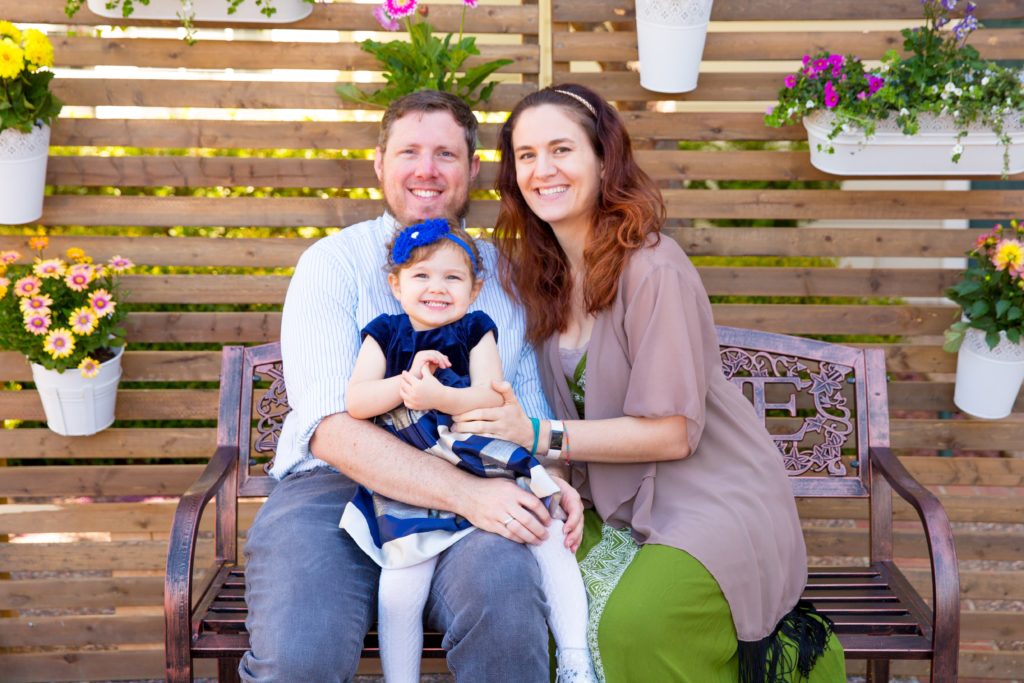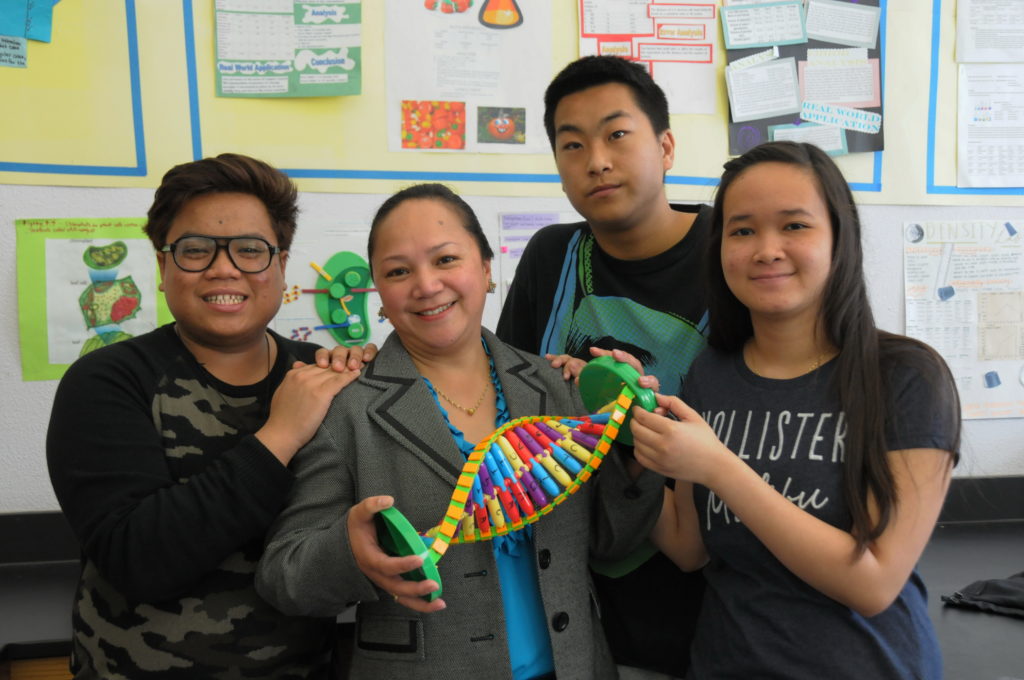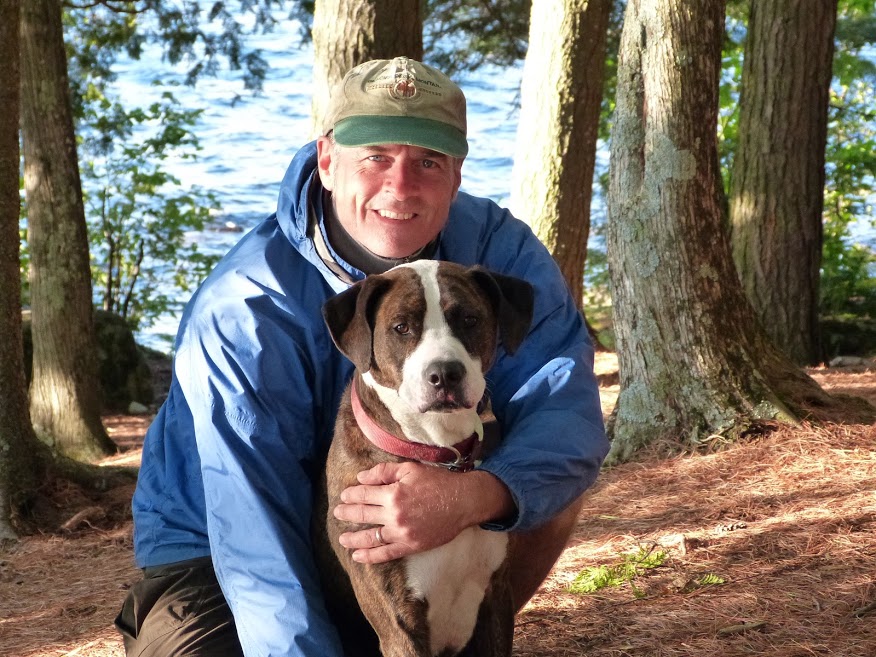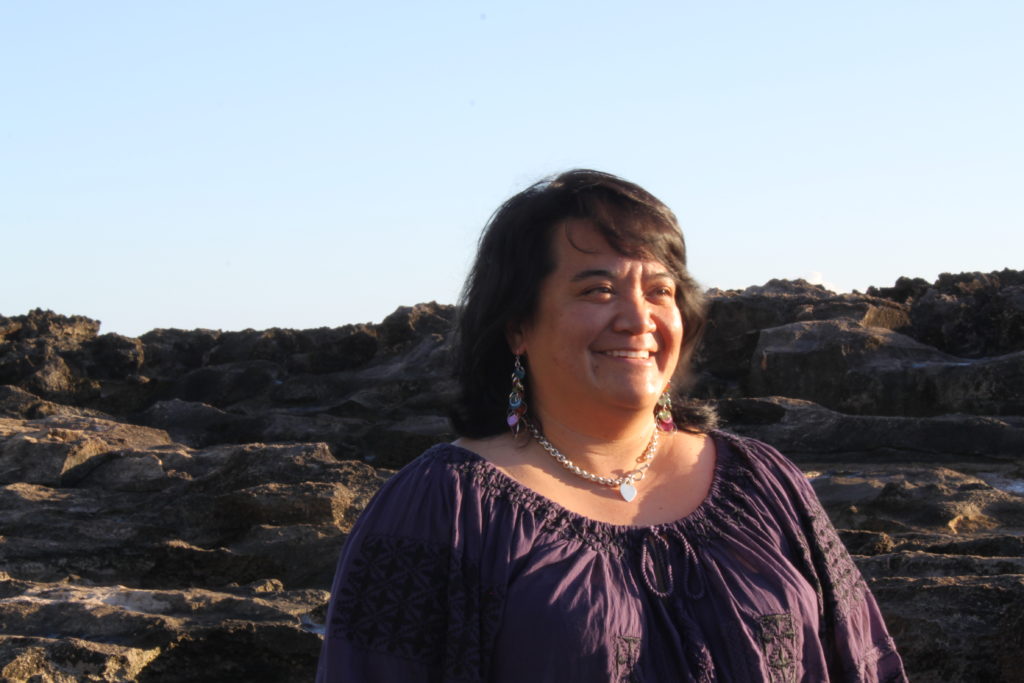Category: Tools for Inquiry
Felicia Yu would love to take a road trip up the West Coast with stops in Ashland (for the Oregon Shakespeare Festival), Portland, Seattle, and Vancouver. It’s no surprise that part of her dream vacation also includes “hitting up every major botanical garden along the way,” since she holds a master’s degree in horticulture.
“My dad said I was born to teach,” says Kerrie Snavely.
She uses those instinctive skills to teach 10-12th grade traditional biology and supported biology and freshwater biology at Conestoga Valley Senior High School in Pennsylvania. Since 2015, she has been instrumental in developing Concord Consortium’s popular Model My Watershed program, which her students use to explore biotic and abiotic factors within their local watershed. “Students can actually see how their everyday life affects the watershed,” she explains.
How can something that can’t be seen crush a 67,000 pound oil tanker made of half-inch steel? That was the driving question Hudson High School teacher Erin Cothran asked her 10th grade chemistry class. “I can’t take full credit for the driving question based on the tanker phenomenon,” she laughs.
When Cassandra Muse was young, she struggled in school, but in fifth grade an inspiring teacher helped turn that around. “Mrs. Jutras was different than any teacher,” she recalls fondly. “She went out of her way to get to know her students on a personal basis, while creating positive relationships with each one. She spent her prep time building their self esteem in their academic abilities, and always found an engaging way to teach all types of learners.”
Ken Hawthorn started his career as a prototyping engineer working with early stage companies to develop proof-of-concept technologies: localized surface plasmon resonance (LSPR) in biotech to long-range electric motorcycles. After volunteering in an afterschool program to help academically and socially at-risk students, he discovered that engineering has a lot in common with teaching.
“Mrs. Bentley, how are you so smart?,” asked one of the kindergarten students in Laura Bentley’s class. Although she was embarrassed by the adoring question from this five-year-old, she knew that she was instilling a love of learning in her students.
Kristina Koster first became interested in teaching as a tutor for the TRIO Upward Bound program while in junior college. The program helps low-income, first-generation college-bound students get into and succeed in college by providing free afterschool tutoring, Saturday educational workshops, and college visits. Kristina recalls, “I was able to see that I could combine my love for helping people with my love for science.”
As a child, Emerlyn Gatchalian was always the teacher: “I’d always get the role of teacher whenever I had playtime with my friends.”
She began her formal teaching career in the Philippines, where a passionate chemistry teacher, who sometimes wore a magician hat and waved a fairy wand, inspired her love for teaching science. “She made learning so exciting and fun,” Emerlyn says. In 2005, after a decade teaching in the Philippines, Emerlyn came to the U.S., but, “Teaching here was so different.” Coming from a more disciplined classroom tradition, she wasn’t used to class management issues. So she sought additional training and learned to implement new classroom routines and policies.
Thomas Troy’s dream vacation includes a trip to the Arctic “to witness rapid climate change,” but the best adventure he’s ever had was much closer to the equator. He and his family spent five weeks on a homestay in Costa Rica where they took classes to learn Spanish, which were “both rigorous and rewarding.” While his family “took advantage of opportunities to get to know as many Costa Ricans (or Ticos) as possible, such as local clerks, waiters, and teachers,” they also found time to go snorkeling, bird watching, and swimming.
Before turning to teaching 9-11th grade, Toni Kaui spent ten years as an architect designing houses for wealthy homeowners. It did not inspire her. “I switched careers because I was tired of all the wasted resources,” she explains. Teaching had “more rewarding outcomes.” For her and for her students.
